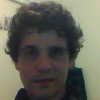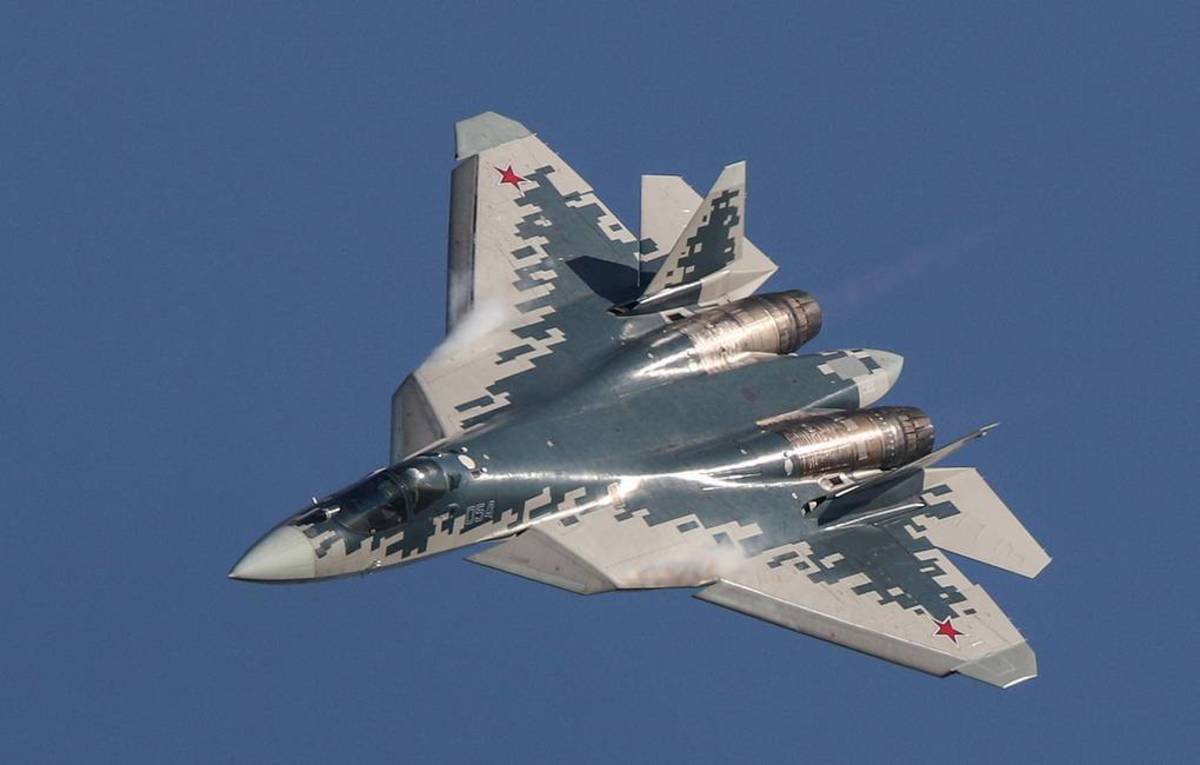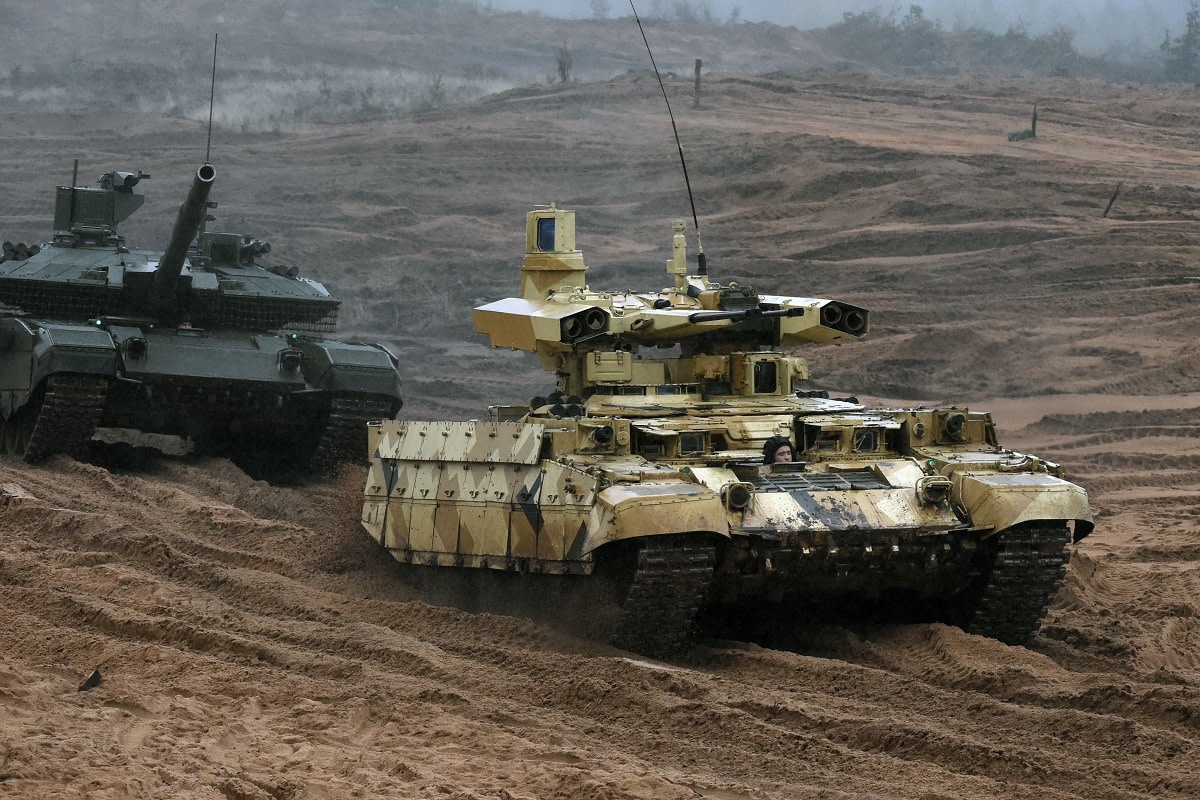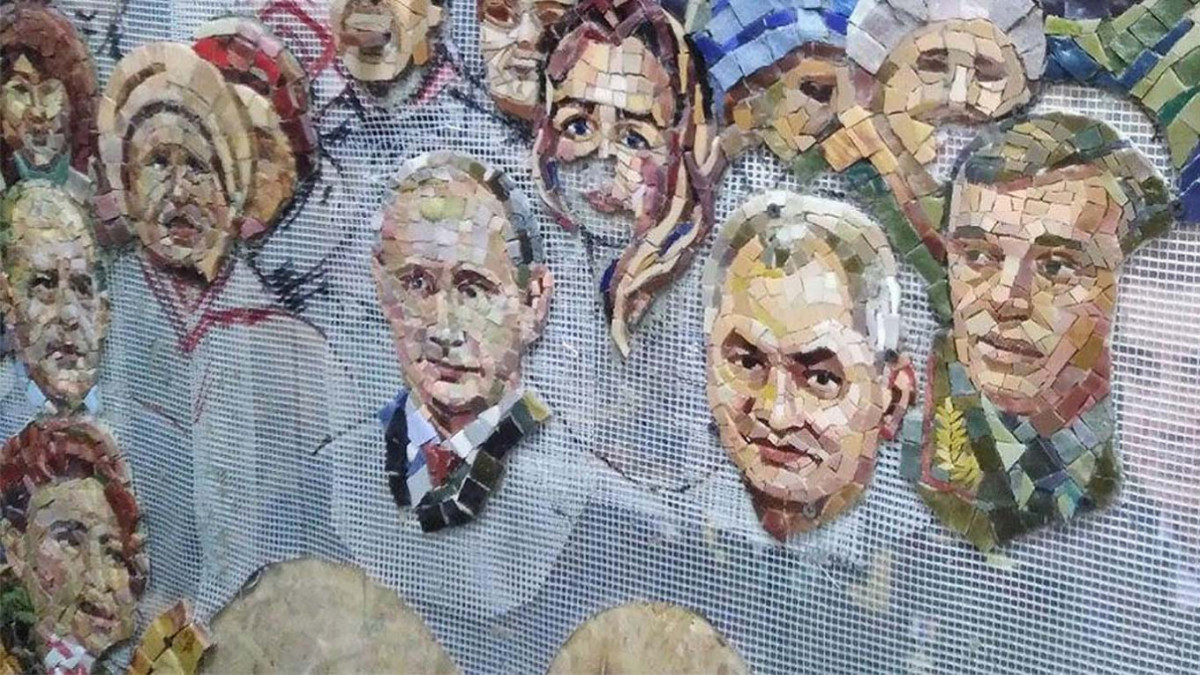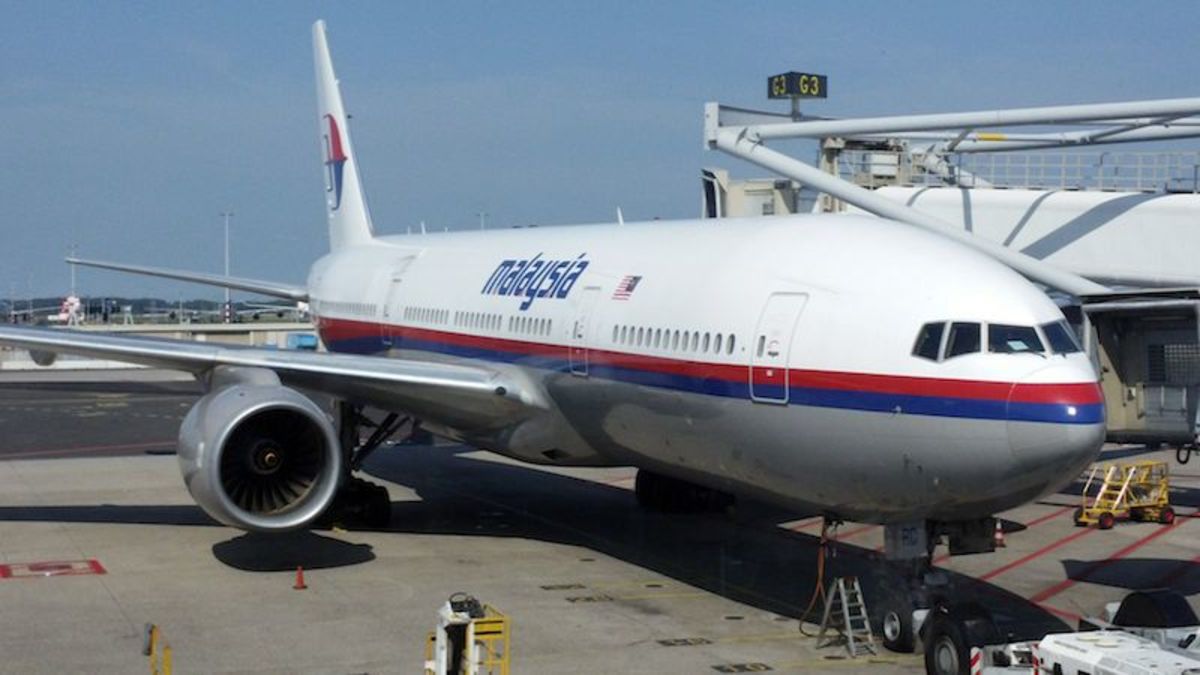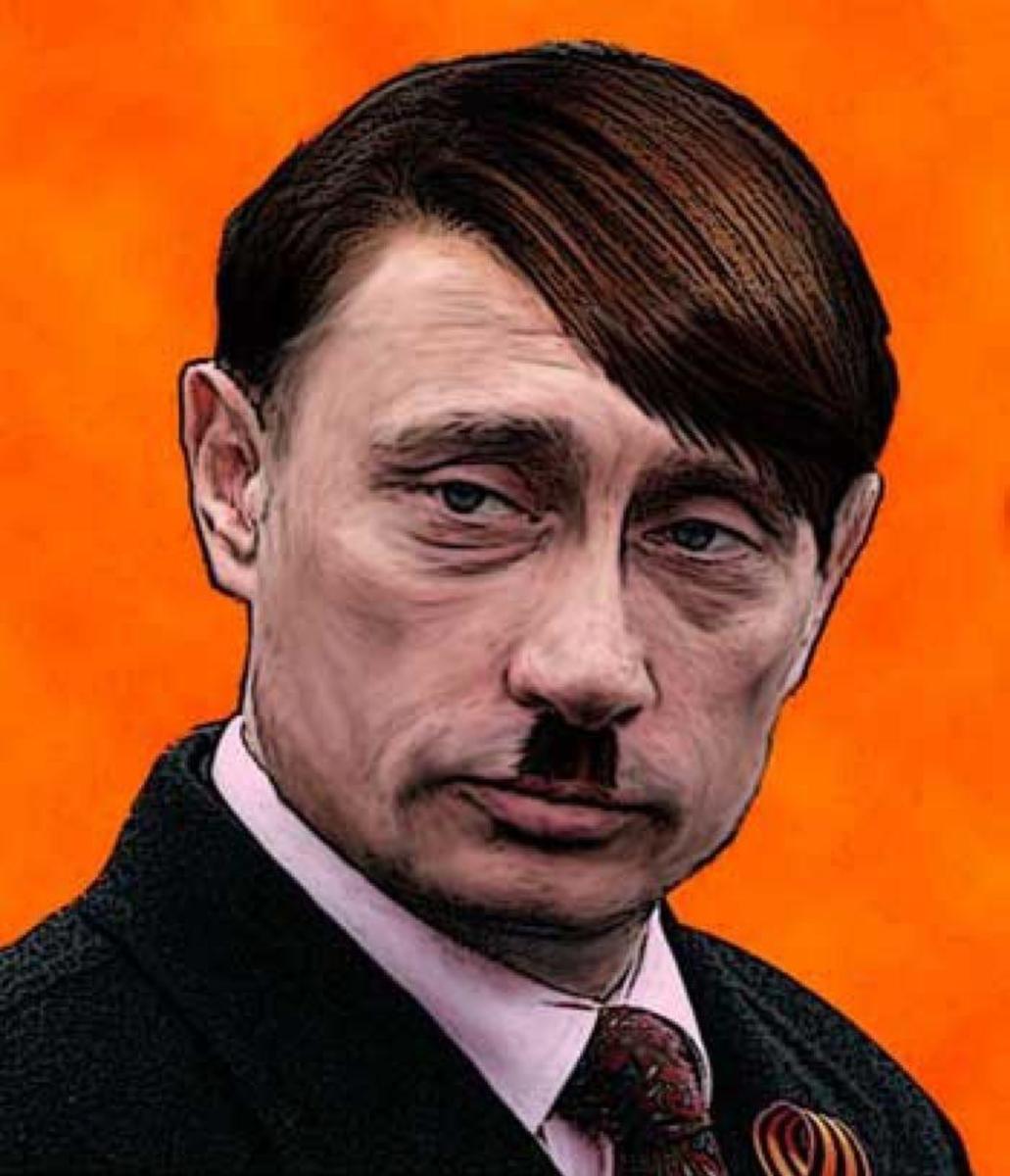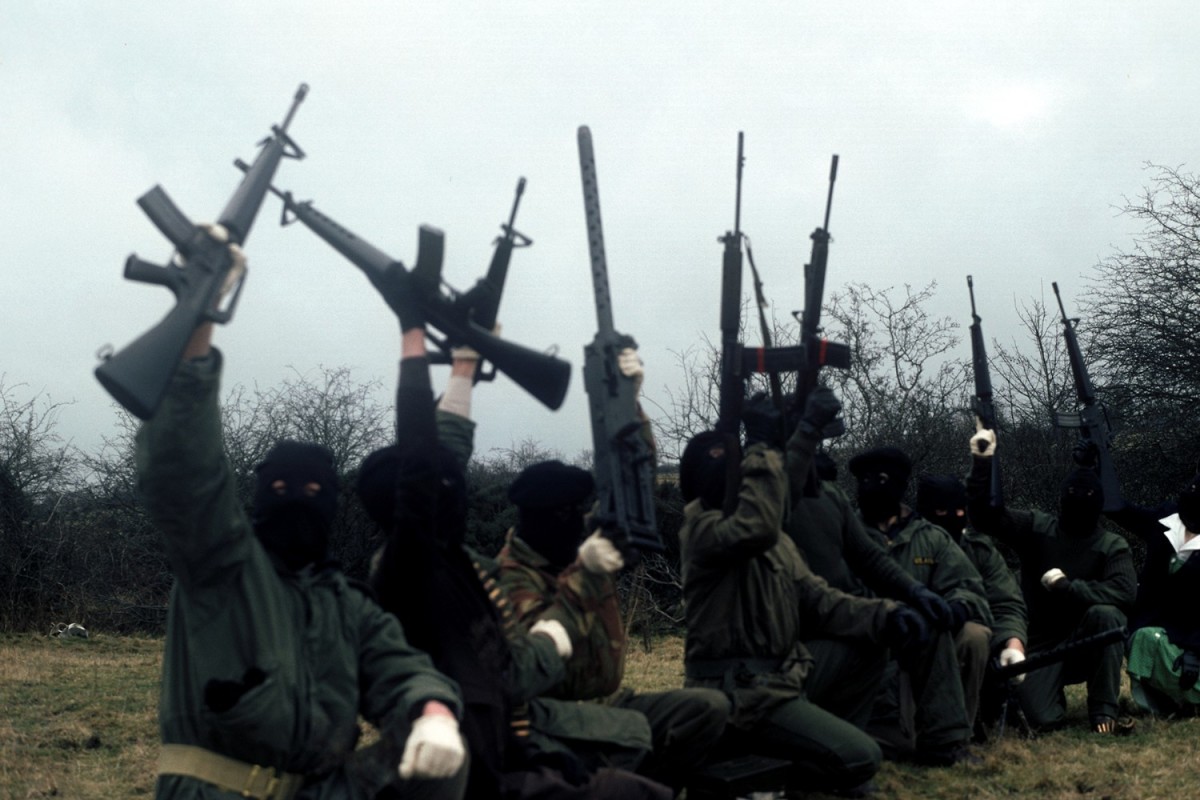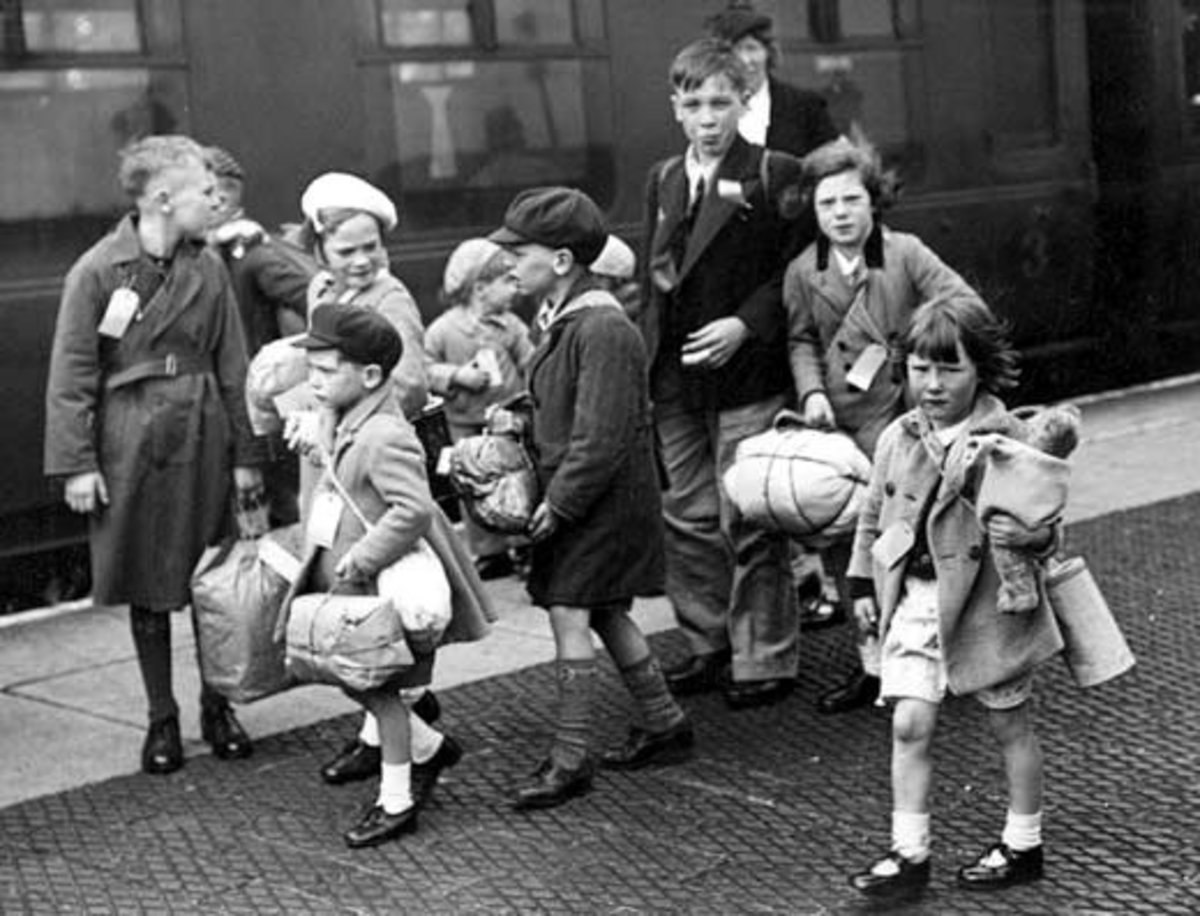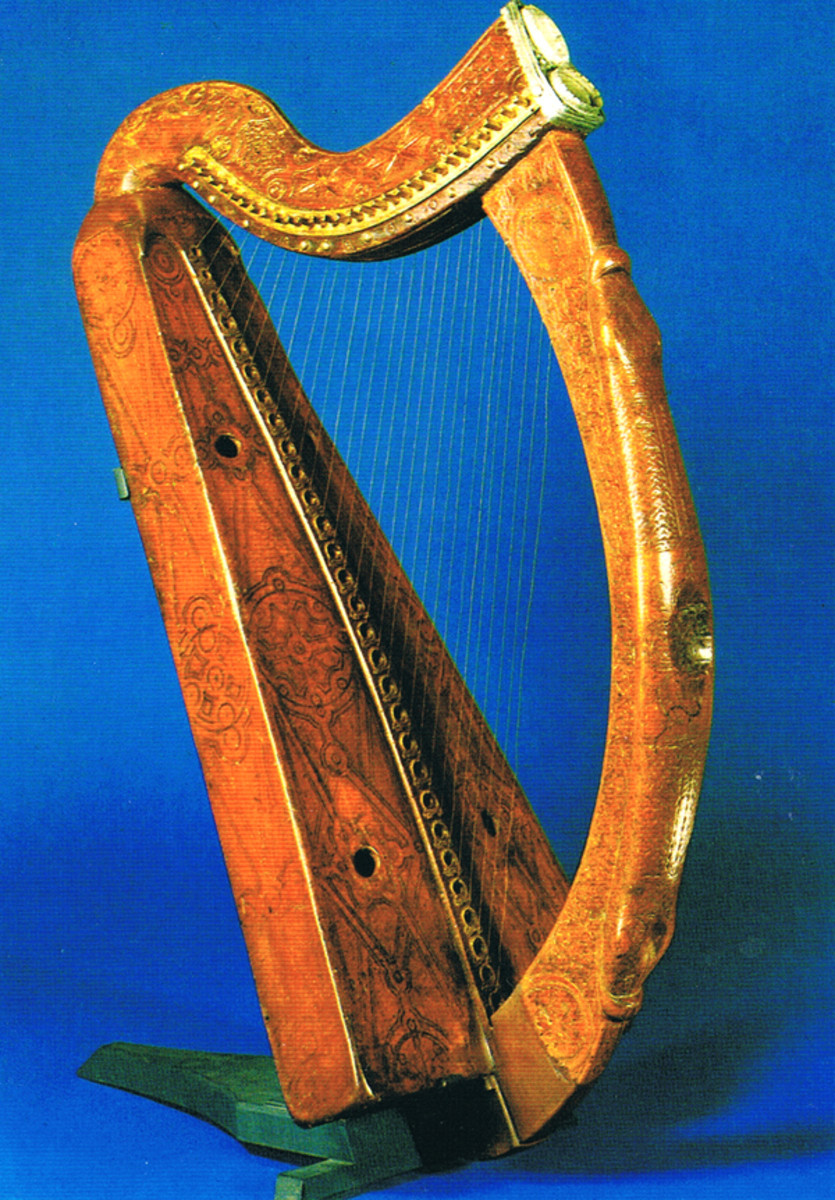The Clash Over Crimea: Russia and Ukraine Stand Off Over Former Soviet Territory
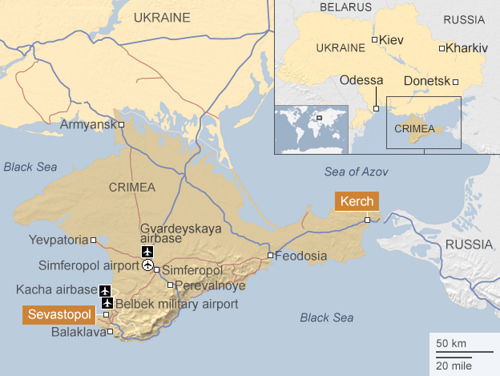
An agreement between the Autonomous Republic of Crimea and Russia last week has left Moscow celebrating and Ukraine crying foul.
A referendum held in Crimea on March 16 indicated that more than 96% of citizens favored independence from Ukraine and annexation by Russia. This was followed by Russian President Vladimir Putin formally announcing Russia's plans to annex the once valuable former Soviet region.
Ukraine's Interim government have stated that they will never accept Russia absorbing Crimea, accusing Moscow of thievery and rejecting the legitimacy of the agreement between Crimean officials and The Kremlin.
While fuming at the sequence of events that resulted in their loss of the Crimean peninsula, the government in Kiev has given the order for soldiers to pull out of the region, initiating the withdrawal of approximately 25,000 military personnel from bases that are being stormed by Russian military and pro-Russia militia. The soldiers are also accompanied by their families as well as groups of journalists and ethnic Tatars, who have been threatened by armed groups supportive of The Kremlin.
While Moscow proceeds with its plans to break Crimea away from Ukraine and integrate the peninsula with the Russian Federation, a massive build up of military troops and armored vehicles across the Ukrainian border has alarmed the interim government in Kiev and western countries, leading to speculation that Moscow may be planning to carry out further military operations in Ukraine.
This Hub provides an overview of the groups and incidents that led to Crimea's transformation from an Autonomous Region in Ukraine to a subject of The Russian Federation. As the crisis is still ongoing updates will also be added as events unfold.
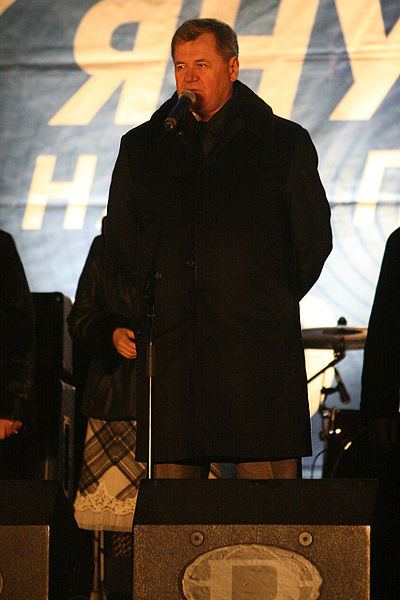
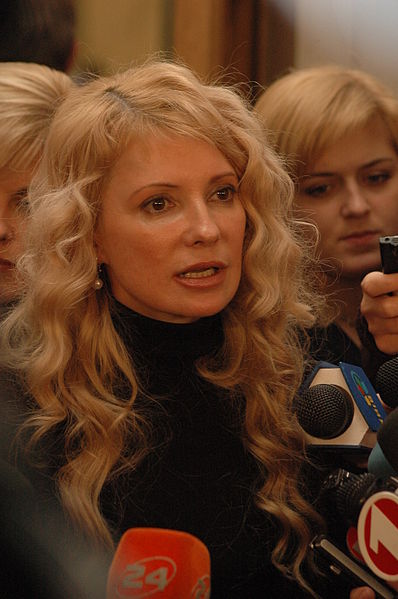
Brief Background to the Crisis: The Ukrainian Revolution
In 2010 Viktor Yanukovych was voted into office as President of the Ukraine, beating his main opposition Prime Minister Yulia Tymoshenko who had also been running in the Presidential election. In 2004 both were involved in the Orange Revolution, which was sparked when Yanukovych's party won what was commonly believed to be a rigged election, leading to large-scale protests that ultimately resulted in Viktor Yuschenko becoming President and Tymoshenko ascending to the Prime Minister's chair.
Following the 2010 election Yanukovych had Tymoshenko arrested for previous financial activities. Under the government of Pavlo Lazarenko (1996-1997), Tymoshenko's company, United Energy Systems, controlled gas imports from Russia earning her the nickname 'the gas princess'. In 2011 Tymoshenko was sentenced to seven years imprisonment for abusing her power in brokering a gas deal with Russia in 2009 and embezzlement. Many countries outside of the Ukraine saw the trial as politically biased.
On November 21 2013 Yanukovych reversed his decision to enter a trade agreement with the European Union in favor of a trade deal with Russia, despite the president's previous support for greater European integration. The President defended his decision by claiming that Kiev could not afford to damage its relationship with The Kremlin, which was attempting to bring Ukraine into the Customs Union of Belarus, Kazakhstan and Russia. This may have also been a tactic by Moscow to maintain some influence over Ukraine, as well as block EU and NATO influence in Eastern Europe.
Yanukovych announced on December 17 that the Russian Federation had agreed to purchase $15 billion in Ukrainian Eurobonds and discount gas prices by around one third. This deal would have offered Kiev some short term relief, allowing Ukraine to prop up their dwindling currency reserves and avoid a price hike prior to the 2015 elections.
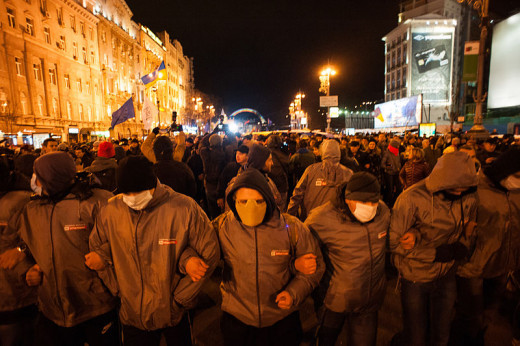
A direct consequence of Yanukovych's decision was the Euromaidan Movement, which consisted of large scale protests, rallies and civil disobedience to demonstrate public support for greater relations with the European Union and disapproval of the Government's trade agreement with Russia. The number of protesters grew from around 100,000 on November 23 to 800,000 in December.
In an attempt to contain demonstrations and violence between anti-government activists and riot police, the Government enacted anti-protest laws on January 16 2014. Many criticized the legislation as draconian,with the ability to prohibit the freedom of speech; restrict citizens' internet use; jail individuals for up to 15-days for installing unauthorized tents and wearing masks; and imprison individuals for up to two years for distributing information on Ukraine's special Berkut police unit who were on the forefront of violent clashes with protesters.
Violence Breaking Out During Kiev Demonstrations Between Protesters and Riot Police
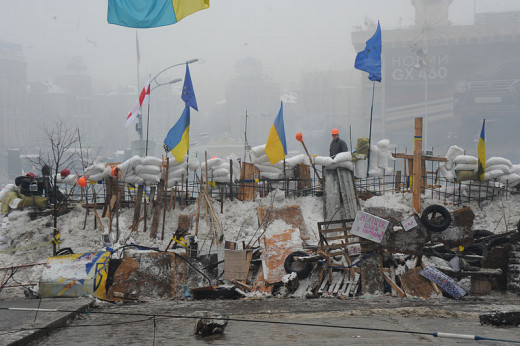
A savage attack by three assailants against prominent journalist and anti-government activist, Tetyana Chornovil, left her with a concussion, broken nose and bruising, enraging protesters further. Tymoshenko's declaration that the attack on Chornovil was "the last drop of blood" in the people's struggle against the pro-Russian Government, was tragically incorrect as violence only continued to escalate..
Violent acts included protesters throwing petrol bombs and riot police and government snipers shooting at activists from rooftops.The first fatalities were reported on January 22, after two protesters were shot to death. Gun battles between protesters and police in mid-to-late February resulted in up to 88 deaths over just 2 days.
On February 22 protesters took control of the president's office and his 140-hectare luxury estate (which came with its own golf coarse and zoo and was described as being "half the size of Monaco").
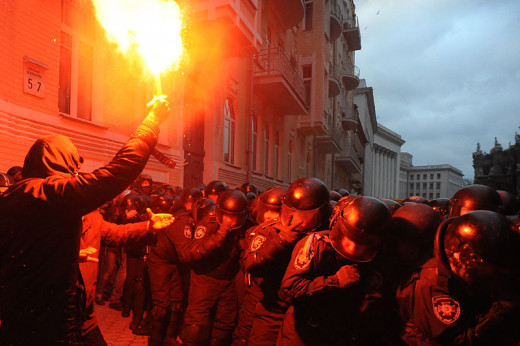
By that time Yanukovych had gone into hiding. Two days later the acting Government issued a warrant for his arrest under charges of mass murder against Euromaidan protesters.
A popular theory suggests that the snipers were actually participants of Euromaidan. These accusations spawned from a leaked phone call between Estonian foreign minister Urmas Paet and Cathy Ashton, who is the EU's High Representative of the Union for Foregin Affairs and Security Policy for the European Union. During the 11-minute phone call, they referred to snipers as being protest movement provocateurs rather than working for Yanukovych's government.
Protesters Celebrating the Ousting of President Viktor Yanukovych
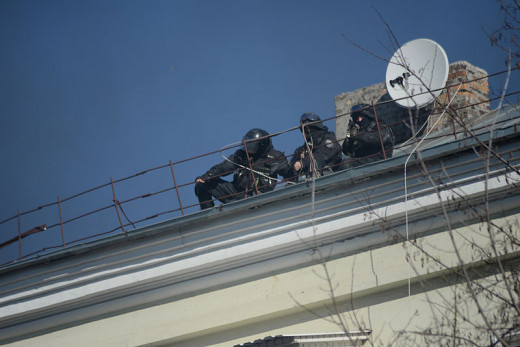
Tymoshenko was released from prison after serving three years of a seven year sentence and members of her 'Batkivshchyna' Party became prominent figures in the interim government. She is expected to run in the presidential election on May 25.
A poll conducted during the protests in December 2013 found that 46% of Ukrainians supported integration with Europe while 36% percent preferred joining Russia's Customs House. Only 49% supported the Euromaidan Movement, while 46% were against it. The study found that the bulk of support came from Western and Central Ukraine, while the majority of opposition came from the East and South of the country, which included the Crimean Peninsula.
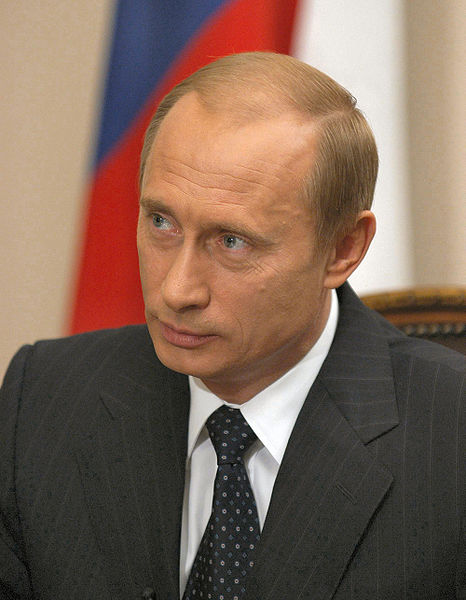
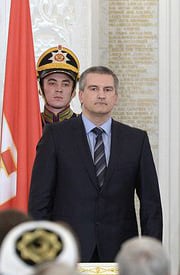
Destination Crimea: The Russian Military Rolls On In
While Euromaidan protests in Kiev began dying down in late February, having served their purpose of ousting Yanukovych, pro-Russian demonstrations were in full swing in Crimea, clashing with pro-Euromaiden activists, including Tatars, ethnic Ukrainians and ultra-nationalist paramilitary groups known as 'The Right Sector' and 'Patrioty Ukrainy' (or 'Patriots of Ukraine'). There were reports of these conflicts becoming deadly.
Anti-riot police that returned home to Crimea from the Euromaiden rallies were reportedly received as heroes, meanwhile activists were seen burning Ukrainian language books.
Unidentified pro-Russian gunman went on to seize control of government buildings in Crimea's capital of Simferopol, including Crimean Parliament. Putin claimed that these individuals belonged to 'self-defense groups' operating outside of Moscow control. The squads' equipment and high organisation however, have led many onlookers to suspect that these unidentified groups are not just simply a civilian militia.
Pro-Kremlin politician Sergey Aksyonov replaced Anatolii Mohyliov, who was dismissed after a no-confidence vote by Crimea's Parliament. Moldavian-born Akysonov is known as the founder of the nationalist party 'Russian Unity'. During the protests in Kiev, Aksyonov was a major organizer of pro-Moscow demonstrations in Crimea and even assembled a small army consisting of several thousand volunteers that operated within Crimean self-defense groups, though he has denied responsibility for some of the activities carried out by armed groups, such as the seizure of Crimean Parliament.
Tarnishing his credibility are accusations that in the 1990s Aksyonov worked as an enforcer, known as 'Goblin', for a criminal syndicate called Salem, an allegation he strongly rejects.
In late-February to early-March Aksyonov requested assistance from Moscow in keeping the peace.
Moscow remained critical of the ousting of Yanukovych, who they saw as the rightfully elected President and refused to deal with those who led an "armed mutiny" against the pro-Russian President. Moscow officials also stated that they were concerned over the well being of its citizens in the Crimean Peninsula and that Aksynonov's request for greater assistance would not go ignored.
On March 1 the upper house of Russia's Parliament (known as the 'Duma') voted unanimously in favor of Putin's proposal for Russia's military to be deployed in Ukraine so as to protect "the interests of Russian citizens and compatriots" in Crimea. Putin says he proposed military action because of “the threat to the lives of citizens of the Russian Federation”.
Following Akysonov's original request for Russian assistance, the Crimean Government expressed interest in the region being annexed by Moscow, leading to March 16 Referendum,
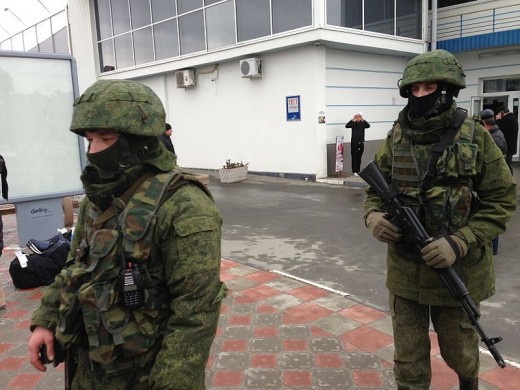
Following this decree, Ukrainian Defence Minister Ihor Tenyukh reported that an extra 6,000 Russian troops in Crimea, alongside an additional 30 armored vehicles had arrived within in Crimean borders. Since then there have been continual reports of Russian troops arriving in Crimea. A senior Ukrainian official recently reported that the number of Russian soldiers that had amassed in the peninsula and the Ukrainian border had increased to around 100,000.
Over the last couple of weeks there have been continual raids on Ukrainian facilities and military bases in Crimea by Russian troops, armored vehicles and "defense groups" wearing uniforms similar to Russian military though without any identifying insignia. There have also been reports of pro-Russian militants taking Ukrainian officials hostage including Sergey Gaiduk, a Ukrainian naval chief in Sevastopol andColonel Yuliy Mamchur, the commander of the Belbek base.
Another 80 Ukrainian soldiers were reportedly abducted or held captive during a military raid on Feodosia naval base on March 24 by Russian forces using stun grenades and machine guns and backed by two helicopters.
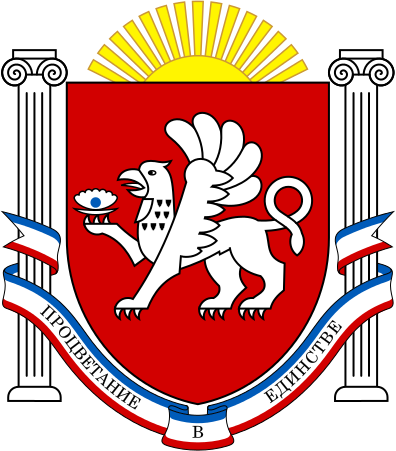
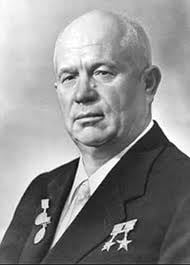
About Crimea
Under Russian Control
Crimea became part of the Russian Empire in 1783 during the reign of Catherine II and following the Ottoman's defeat in the Russo-Turkish War (1968-1774). In 1921 Crimea became an Autonomous Republic.
On Feb. 19, 1954 Nikita Khruschev, who was the Soviet Union's Secretary General at the time, merged Crimea with the Ukraine, a region that he was known to have a soft spot for, as his wife was Ukrainian. Khruschev's official reason for combining the two regions was that Crimea was a gift to Ukraine and a good will gesture to mark the 300th anniversary of Ukraine's merger with Tsarist Russia.
Khruschev's son, Sergei, claimed that his father's decision was actually driven by economic and agricultural issues, particularly the building of a hydro-electric dam on the Dnieper River which would irrigate Ukraine’s southern regions including Crimea.
At the time Kruschev had no way of knowing that the USSR would collapse decades latter, resulting in Ukraine and Crimea breaking away from The Kremlin's control. Many Russians and Crimeans resent his actions to this day.
Post Soviet Era
Since the Soviet collapse in the early 1990s Crimea has functioned as a semi-autonomous region of the Ukrainian nation. It has its own legislative body and Council of Ministers, which holds executive power and is headed by a chairman that is appointed and dismissed by parliament (Verkhovna Rada) with approval from the Ukrainian Government.
Crimea's population is estimated at around 2.35 million people, with nearly 60% of its population identifying themselves as ethnic Russian.
The peninsula has become somewhat of a tourist hot spot and in recent years is considered Ukraine's second most popular holiday destination after Kiev, with 6 million visitors every summer. National Geographic also listed Crimea as a must-see location in 2013.
According to Slate, Crimea is highly dependent on Ukraine for its electricity as well as its food and water, due to the semiarid climate that makes Crimea such as popular tourist location.
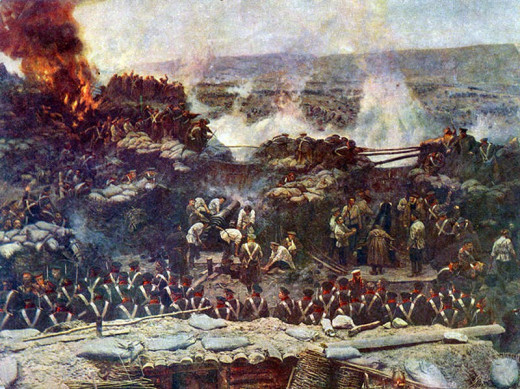
The Crimean War
The current crisis is not the first time that Crimea has been at the center of conflict. From October 1853 - February 1856 war broke out on the Crimean Peninsula between Russian forces and a military coalition consisting of Britain, France, the Ottoman Empire and Sardinia-Piedmont. In short, a major reason for the conflict was the allied countries' fear of Russian expansion.
Despite the efforts of Florence Nightingale and a team of 38 volunteer nurses, the war ended up costing 785,000 lives. Most died from disease, neglect and a lack of food and water as opposed to battle wounds, making up around 600,000 deaths.
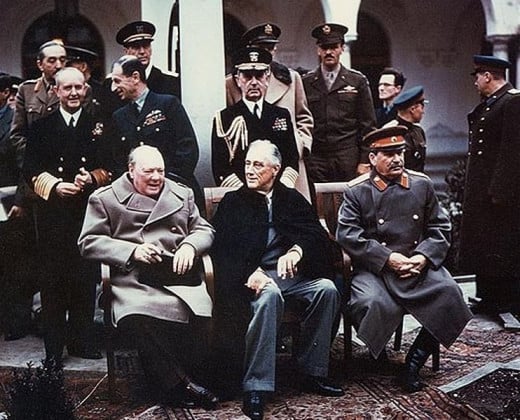
The Yalta Conference
Crimea is probably most well known for hosting a conference in 1945 between the US, UK and USSR, who had been the major world powers in defeating the Axis Alliance between Nazi Germany, Imperial Japan and Fascist Italy during World War II.
The purpose of the conference was to re-organize post-war Europe including the demilitarization and denazification of Germany; and to secure Russian involvement with the United Nations and cooperation in defeating Japan, who was the last standing member of the Axis until their surrender in September 1945.
Why is Crimea Valuable to Russia?
Crimea is a strategically important location for Russia's naval fleet . Though Crimea has been part of Ukraine ever since Gorbachev's decision in 1956, Russia's Black Sea Fleet has remained stationed on the peninsula in the southern Crimean region of Sevastopol since 1783. This strategically valuable location is home to Russia's only warm-water port and has allowed Moscow to project its naval power on a global platform.

Following the break up of the Soviet Union in the early 1990s, Russia and The Ukraine signed a 1997 agreement known as The Treaty of Friendship and Co-operation, which allowed Russia to rent it's naval base in Sevastopol from Ukraine. In 2008 the Ukrainian Government tried terminating the arrangement telling Moscow that the Black Sea Fleet was to abandon the base by May 29 2017. They eventually buckled in 2010 under pressure of a gas-price hike from Moscow and extended the Russian navy's lease until 2042.
By absorbing Crimea, Russia secures the future of their naval base in a region that's otherwise heading towards closer relations with some of Moscow's greatest rivals (namely the European Union and NATO). Additionally it also gains access to the oil and gas fields in the Black Sea that Ukraine was planning to exploit so as to reduce its dependence on Russian imports.
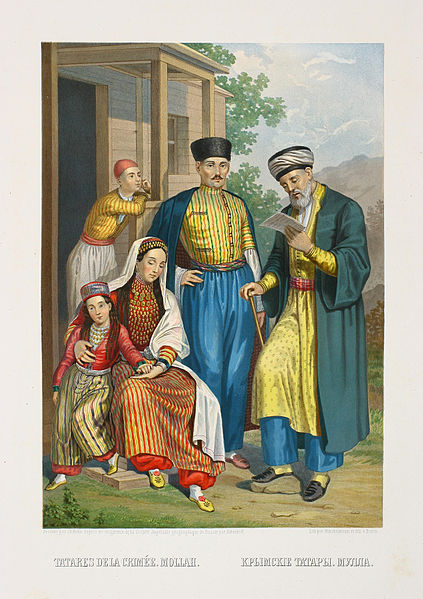
The Tatar Equation
During Russia's original annexation of the Crimean peninsula in 1783, around 98% of the population were made up of the Tatars, an ethnic group that was predominantly Sunni Muslim with cultural bonds to Turkey.
By the end of April 1783 thousands of Tatar intellectuals, clergy and military officers had been round up and executed. Expropriation of land and forced deportation led many to seek protection in other areas still under Ottoman control.
Within the first decade of annexation Russia had successfully driven up to 75% (around 300,000) Tatars out of Crimea. Those who remained were subject to ongoing persecution, including during the Crimean War where they were suspected of assisting the allied forces against Russia. By the end of the 19th century their numbers had been reduced to that of a minority group.
During the 1920s and 1930s, tens of thousands of Tatars where eliminated, imprisoned, exiled or died from famine. In 1944 Soviet dictator, Joseph Stalin, forcefully deported what remained of the Crimean Tatars for their alleged collaboration with the Nazis that had occupied the peninsula during World War II. Nearly half of the 200,000 exiled men, women and children died en route or shortly after arriving in the Urals, Siberia, and Central Asia.
They were accompanied by other exiled ethnic groups residing in Crimea including tens of thousands of Germans, Greeks, Bulgarians and the remnants of a Turkic Jewish community known as the Krymchaks, who had lost over two thirds of their population to Nazi operations and were further targeted by Russian anti-Jewish legislation.
A 1967 decree from Moscow allowed these groups to return to return to Crimea, though little assistance was given in helping them resettle, rehabilitate or make amends.
Crimea's Support and Opposition to Russian Annexation
The Crimean referendum which was held on March 16 showed overwhelming support for the region to break away from the Ukraine and merge with Russia. With over 96% of voters supporting Russian annexation one would think that citizens would remain somewhat united, yet the media constantly presents Crimea as a highly divided region that's the hotbed of protests, violent clashes and armed raids on Government buildings by gun-toting militant defense groups.
One major reason for Crimea's strong support for unification with Russia is due to the region's demographics. In a 2001 census 58.5% of Crimea's population identified themselves as Russian (compared to 65.6% in 1989), while just 24.4% said that they were Ukrainian and only 12.1% were Crimean Tatars (signifying massive population growth since 1989 when the Crimean Tatars made up just 1.9% of the population). .
Additionally, Russian was the native language of 77% of Crimean inhabitants in 2001, followed by Crimean Tatar (11.4%) and then Ukrainian (10.1%).
Cut off the from the Ukrainian mainland with a lack of thriving industry and a heavy economic dependence on tourism, some ethnic Russians have admitted that they've never really felt Ukrainian or properly represented by politicians in Kiev, who have failed to deliver on their promise of a better life in the post-Cold War era. Those who voted in favor of Russian unification expressed frustration at what they see as two decades of government neglect.
Crimean Russians' bitterness towards the Ukrainian government increased during the protests in Kiev that opposed closer relations with Russia and sought the overthrow of pro-Moscow President Viktor Yanukovych.
Ukraine's newly formed Parliament further distanced ethnic Russians on February 23 by attempting to scrap a minority language bill that since 2012 elevated the status of the Russian language in Ukraine to somewhat of a second language or regional language, recognized in courts, banks, school and government institutions. Interim President Oleksandr Turchynov rejected the repeal of the language bill on February 27, but the damage was already done with ethnic Russians losing faith in the Government's ability to represent their interests.
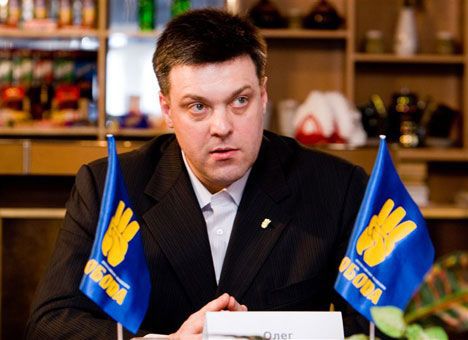
Putin has described the Euromaidan leaders and the interim government as consisting of ."nationalists, neo-Nazis, Russophobes and anti-Semites". This statement was largely directed at the Svoboda Party, who were highly involved in the anti-government alliance against Yanukovych and who since the 2012 parliamentary elections have held 37 seats. Svoboda members include acting chief prosecutor Oleh Makhnitskyy; deputy prime minister Oleksandr Sych; and Andriy Parubiy, chairman of the National Security Council.
Svoboda is well known for its strong anti-corruption stance; its opposition to speaking Russian in the Ukraine; its members being accused of hate speech and antisemitism; and its reverence of Stephan Bandera, a controversial politician, nationalist and partisan leader whose ultimate goal for Ukrainian independence led to a temporary alliance with the Nazis, conflict with the Soviets and creation of the Organization of Ukrainian Nationalists (OUN) that from 1942-1944 massacred tens of thousands of Poles and Ukrainians in Volhynia and Eastern Galicia.
In 2004 the group's leader, Oleh Tyahnybok, was kicked out of former President Viktor Yushchenko's parliamentary faction for stating how Ukrainians in World War II fought against Muscovites, Germans, Jews “and other scum," and that the current Ukraine is controlled by a “Muscovite-Jewish mafia.” In 2005 he signed an open letter to Ukrainian leaders calling for the government to halt "criminal activities" of "organised Jewry", which ultimately wanted to commit genocide against the Ukrainian people.
Their anti-Russian stance also led to Svobodo MP Igor Miroshnichenko assaulting television station chief Oleksandr Panteleymonov for broadcasting "pro-Russian images" that included reports on the Russian annexation of Crimea. Ironically Miroschnichenko is also a member of the parliamentary committee on freedom of speech.
Svoboda's parliamentary deputy, Yuriy Mykhalchyshyn, has also been accused of supporting fascism, as he reportedly quotes Nazi leaders, including Nazi propaganda minister Joseph Goebbels. In 2005 he even created the online ‘Joseph Goebbels Political Research Centre’ (which later changed Goebbels for Ernst Jünger).
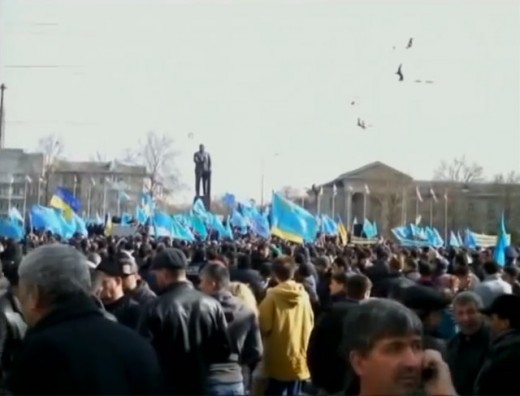
Despite controversies within the interim government, not all Crimean residents have been enthusiastic about Ukraine's secession, with several minority groups announcing their strong opposition to the prospect. Ethnic Ukrainian and Tatars announced their plans to boycott voting, as many have been apprehensive about Russian annexation while others totally rejected the legitimacy of the referendum.
Crimean Tatars are among the greatest critics of Moscow's attempts to absorb Crimea, with a recent survey showing that around 90% of 3,000 Tatars were opposed to Russian annexation.
In the days leading up to the referendum, Tatar houses in the Crimean city of Bakhchisarai were marked with an ominous X, reminiscent of Soviet-era tactics prior to the forced deportations in 1944. Several Tatar businesses were also firebombed. In response to this growing threat from pro-Russian militia, the Tatar community have been forced to create their own self-defense groups to keep their streets safe.
Tatars have expressed fear that Russian annexation may see history repeat itself by curtailing their rights, expropriating their property and even possible ethnic cleansing.
Crimea's pro-Kremlin Prime Minister, Sergey Aksyonov, guaranteed Tatar representation in the local government and that money available to the community would be doubled in 2014. As Aksyonov's Crimean nationalist party Russian Unity, reportedly carried out open attacks on Tatar properties and desecrated graveyards, his claims weren't all that effective at winning over the trust of Crimean Tatars, who have been migrating from their homes in droves.
On March 18 Russian news agency, RIA Novosti, reported that the Crimean Government was attempting to make Crimean Tatars vacate part of their land, which is required for "social needs". There have been recent reports of many Tatars fleeing Crimea and migrating to Western Ukraine.
In the midst of increased antisemitism towards Crimean Jewish communities in early March, Jews were somewhat divided on whether Russian annexation would improve conditions. Some leaders of the Jewry suggest that antisemitic activities were perpetrated by pro-Russian activists in an attempt to validate Putin's claims that Ukraine was ruled by a fascist, neo-Nazi regime. However some believe that antisemitic threats are real and support Russian intervention, with several Jews reporting that they felt safer in the city Sevastopol following its occupation by Russian troops.
Many prominent Jewish community leaders declared their objection to the notion that Russian troops are liberators freeing Jews from a new fascist regime. In early March dozens signed an open letter to Putin stating that Jews generally didn't want "rescue" by Russia.
The Information Telegraph Agency of Russia initially reported that attendance to the referendum was 123%, leading many to believe that the election was rigged. This was later found to be an error, with the real percentage allegedly being 82%.
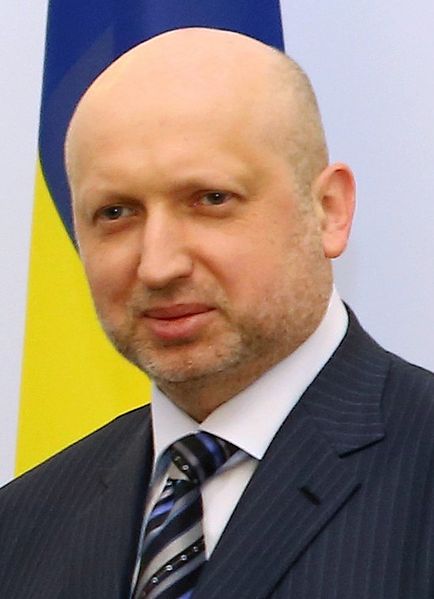
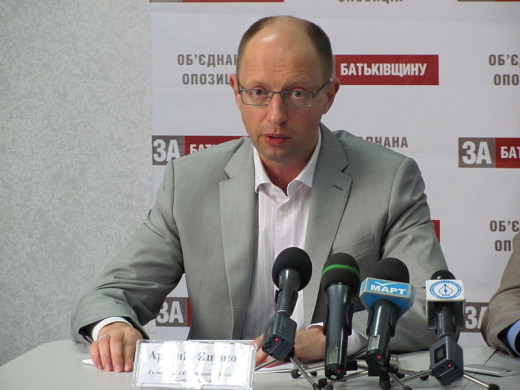
Reaction to Russian Annexation
Ukraine
Moscow's claim on Crimea has been widely criticized for what many perceive as a direct violation of the Budapest Memorandum signed by England, the United States and Russia in 1994. The political agreement involved Ukraine surrendering its stockpile of ex-soviet nuclear weapons (the third largest nuclear arsenal in the world at the time). In return, the signatories were to assure that the Ukraine's independence, sovereignty and existing borders were respected and that the three countries should “refrain from the threat or use of force against the territorial integrity or political independence of Ukraine.”
The agreement between politicians in Moscow and the Crimean Simferopol has been denounced as "illegal" by the interim government in Kiev and western countries.
Critics of the peninsula's secession claim that Crimean politicians didn't have the constitutional power to run a legitimate referendum without consulting the Government in Kiev and opening up voting to the entire nation, so that the whole country could have a say on Crimea's fate.
Many critics have also declared the referendum as illegitimate due to the presence of Russian troops and armed pro-Moscow defense groups occupying the area that may have intimidated voters and influenced their voting preferences.
Ukrainian Prime Minister Arseniy Yatsenyuk went on to warn the Crimean parliament that "no one in the civilized world" would recognize its referendum, calling the vote "unconstitutional" and "illegitimate". Politicians in Kiev also issued arrest warrants for Crimea’s parliamentary speaker and prime minister on charges of attempting to seize state power.
Some socio-political commentators have noted somewhat of a spooky similarity in Vladimir Putin's annexation of Crimea and Adolf Hitler's 1938 seizure of the Czechoslovakian territories known as 'Sudetenland', where an ethnic German majority resided. Both leaders justified their actions as necessary so as to protect their fellow countrymen.
Despite this criticism, Moscow has continued with its intentions of absorbing Crimea, resulting in several acts of retaliation by members of Ukraine's parliament. These include temporarily cutting off electricity to Crimea's capitol Simferopol and terminating the broadcast of four main Russian TV channels in an act deplored by Russia's Foreign Ministry as an attack on democratic freedoms of citizens.
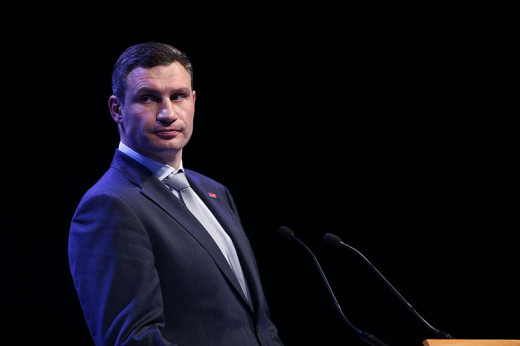
Both Yulia Tymoshenko and Presidential candidate Vitali Klitschko have supported the government's rejection of the referendum's legitimacy and secession of the Crimean peninsula. Klitschko, who was also a renown professional boxer named Dr. Ironfist, was attacked with a fire extinguisher while trying to quell violence during Euromaidan, fueled by militant group 'The Right Sector', who he described as "provocateurs".
Klitschko has described Crimea as an "integral part of the Ukraine", while expressing concern for the safety of Crimean Tatars, ethnic Ukrainians and Ukrainian patriots living in Russian controlled Crimea. He even went as far as to suggest that the Kremlin may target these groups in an ethnic cleansing operation.
Tymoshenko has stated that Crimea will always be a part of Ukraine, despite activities by its Russian occupants. She described the referendum as "one hundred percent illegal" and "a cover for overt military aggression against Ukraine and an attempt to annex part of Ukrainian territory.
She has urged the Ukrainian Government to sign the Rome Statute so that Ukraine can appeal Russia's aggression in the International Criminal Court.
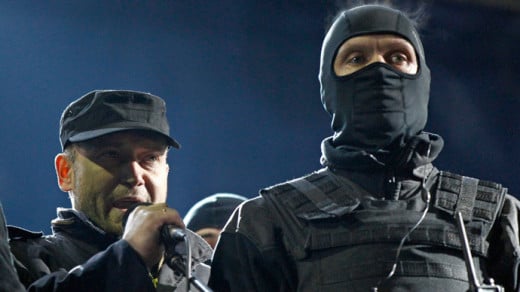
Ultra-nationalist groups within Ukraine favor more drastic actions. Dmytro Yarosh, leader of 'Pravy Sektor' (or 'The Right Sector') has threatened to destroy pipelines supplying Russia with gas and has publicly called for anti-Russian forces to carry out acts of terror against them.
The organization incorporates various right-wing paramilitary groups, such as 'Patrioty Ukrainy' (The Patriots of Ukraine) and Trizub (Trident), as well as Russian-speaking football hooligans. Its numbers generally consist of the more radical demonstrators during Euromaiden, linked to many acts of violence against pro-Russian forces and demonstrators in Kiev and Crimea. Notably, there have been media reports of The Patriots firing into crowds of pro-Russian protesters as well as taking hostages.
Yarosh has been training with paramilitary groups for over 20 years in preparation of a national revolution to sweep Ukraine’s government into extreme ultra-nationalistism. While speaking with TIME Yarosh stated that they had amassed a lethal arsenal of weapons. In an interview with Newsweek Yarosh said that his men (which he claims exceed 10,000) are continuing to train post-Euromaidan so that they can cleanse the Ukraine of foreign influence.
Previously Yarosh also threatened to launch a partisan war against Russia and encouraged other Ukrainians to defend the country's "territorial integrity". Realizing Russia's vast military strength over Ukraine's army and paramilitary groups, Yarosh says that the national focus should be to resolve the crisis through negotiations.
Putin recently requested Interpol to put The Right Sector on their an international wanted list for the group's known use of violence against Russians.
UPDATE 2/4/2014: Yanukovych, now residing in Russia, declared Crimea's annexation as a "tragedy" and stated that such a thing would never have happened if the Euromaidan protesters had not ousted him from power. He advised that he would try convincing Putin to give Crimea back to Ukraine. Additionally Yanukovych denied ordering snipers to kill civilians during demonstrations in Kiev.
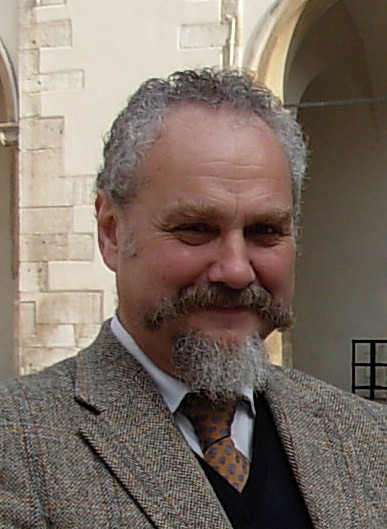
Russia
According to recent polling, public opinion in Russia on the Crimean annexation has been mixed. A poll conducted in February found that 43% of Russians saw the political upheaval in Kiev as a "violent coup" and 23% called it a civil war. A poll from September 2013 also found that 56% of Russians considered Crimea to belong to Russia.
In a survey conducted in early March 67.8% of respondents approved of Putin's job performance, the highest rating he's enjoyed since May 2012 largely due to his position on Crimea and hosting the Winter Olympics. The survey also found that 71% of respondents believed Russia should more actively defend the interests of Russians in Crimea and only 17% opposed coming into conflict with Ukraine.
According to Andrey Semenov, a Russian native and a geopolitical and energy expert, in Moscow many people are in favor of the annexation, though most of these are older citizens longing for the return of a Russian Empire. The younger population however is more critical of Crimea merging with the Russian Federation, due to sanctions and the economic cost of reviving Crimea's fragile economy.
Semenov says that many people in Russia see Crimea as "a useless economic burden" as the region is "painfully poor and requires massive investment". It has relied on the Ukraine to supply it with water and energy and requires massive investment and subsidization. Apparently government estimates suggest that social subsidies in Crimea alone will require $2 billion annually.
There have been recent examples of The Kremlin stifling criticism of its actions. Earlier this month, Professor Andrei Zubov was sacked from his position at the Moscow State Institute of International Relations, a prestigious diplomatic school with ties to the foreign ministry, after writing an opinion piece that likened Russia's military operation in the Ukraine to Nazi Germany's annexation of Austria in 1938
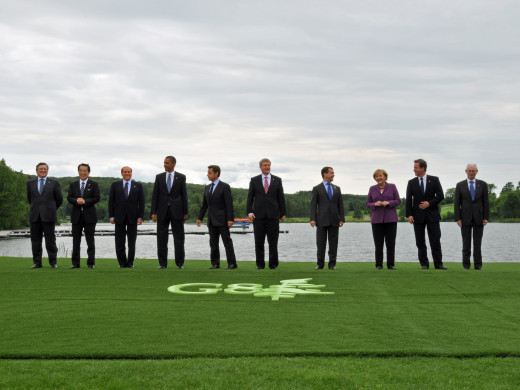
Internationally
The EU and US view Russia's military intervention in Crimea as a violation of Ukraine's sovereignty. Both have imposed sanctions on select individuals, mostly involving visa bans and asset freezes.
The European Union (EU) placed sanctions on major pro-Russian secessionist leaders, including 10 leading Russian lawmakers and three Russian military commanders. The US has imposed financial sanctions and travel bans on at least 11 individuals including two of Putin's advisers, officials and lawmakers, as well as Crimea-based separatist leaders for undermining "democratic processes and institutions in Ukraine."
Russian officials expressed a fairly blasé response to being sanctioned by the US, with Putin and several others stating that they treated it more as an honor, rather than anything punitive. However on March 20 Russia retaliated by placing entry bans on a range of U.S politicians, lawmakers and Government officials. On March 26 they were considering imposing even deeper sanctions.
Australia has announced its intent to place financial and travel sanctions on 12 individuals (8 Russian, 4 Ukrainian) who have been instrumental in Russian's involvement in Crimea. Australian Foreign Minister Julie Bishop said that the government was also contemplating barring Vladimir Putin from attending the G20 Summit in Brisbane later this year.
In early March the other seven members of the G8, an international forum of the world's most industrialized countries, (Britain, Canada, France, Germany, Italy, Japan, the United States) signed a declaration criticizing Russia's violation of Ukraine's sovereignty as an act incompatible with the values of The Group of 8. The Declaration was also signed by the Presidents of the European Council and European Commission.
Symbolically the world leaders identified themselves as the 'G7', indicating that Moscow's actions had compromised the G8 membership that they had held since 1997. This was further supported by French Minister of Foreign Affairs Laurent Fabius, who reported live on radio station Europe 1 that the G8's other members had decided to suspend Russia's membership.
On March 24, 2014 Russia's G8 membership was officially suspended. Russian Foreign Minister Sergei Lavrov dismissed this action as being "not a big problem".
A resolution passed by the The United Nations General Assembly on March 27 also opposed Russia's actions in Crimea by affirming Ukraine’s territorial integrity and criticizing the Crimean secession as being "illegal". 100 members voted in favor, while 11 opposed and 58 abstained.
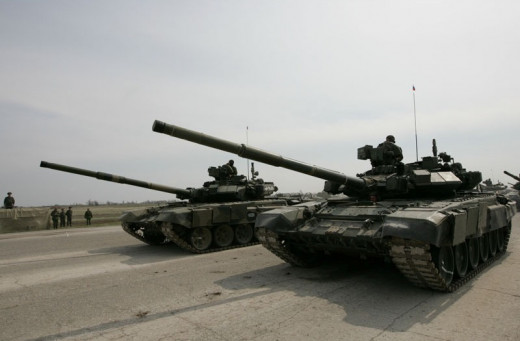
If It Comes to War...
On March 18, hours after Putin delivered a well received victory speech in the Kremlin’s St George’s Hall, a Ukrainian serviceman was killed during a raid on a military base by pro-Russian forces. Interim Prime Minister Arseniy Yatsenyuk declared the incident a " war crime" and authorized soldiers to use their weapons for self-defense.
Yatsenyuk also stated that the situation was shifting from "the political to military form" and that there was "a strong possibility" of Russia launching a full scale invasion in the Ukraine". This allegation has been denied by Vladimir Putin despite a continual build up of troops on Ukrainian border.
By March 27 approximately 50,000 Russian troops accompanied by tanks and artillery had reportedly amassed at the border, raising serious concerns that Russia may be planning to invade Ukraine proper. The Russian Government has dismissed claims that they're planning an invasion, instead claiming that the build up of troops is due only to a military exercise that has no intention of crossing the border.
However United States intelligence officers believe that “that Putin is not done in Ukraine”.
NATO officials have also expressed concern that Russia may turn its attention to Transnistria, a Russian-speaking region in western Moldova that is also known as Trans-Dniester and where separatist leaders demanded the right to join Russia as well, following the annexation of Crimea.
If things became worse and the governments of Kiev and Moscow were to declare war, the Ukraine would be seriously outnumbered without any additional military support.
The website Global Firepower, which attempts to give an approximate ranking of 106 countries' firepower, ranks Russia as the world's second greatest military power after the United States. The Ukraine is listed in 21st place,, positioned between Australian and Iranian forces.
Below is a list of a military statistics provided by the International Institute of Strategic Studies (IISS). Conflicting estimates and additional information are also included where appropriate.
- Armed forces: The IISS estimates that Russia has around 845,000 troops compared to Ukraine's 129,950. Associated Press suggests that Russia military size is closer to 1 million, while Ukraine's reaches approximately 180,000 personnel. A third source estimates Russia's military number to be around 766,000 and Ukraine's to be around 160,000.
- Reserves: Russia has around 2 million reserves, while Ukraine has approximately 1 million.
- Tanks: Russia has 2,550 tanks compared to Ukraine's 1,110. According to Global Firepower, Russia's tank regiment may be as high as 15,500 while Ukraine's number of tanks is closer to 4,112.
- Submarines: Russia has approximately 64 submarines while Ukraine has 1.
- Navy Vessels: The IISS says that Russia has approximately 171 naval combat units, while Ukraine only has around 17. Global Firepower claims that Russia's naval force is closer to 352 units, while Ukraine has at least 25 naval vessels.
- Combat Aircraft: Russia has up to 1,389 combat aircraft, compared to 221 belonging to Ukraine.
